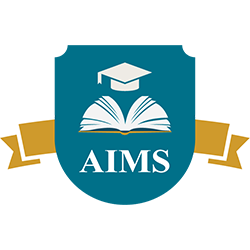The IRCC concerns that, the Indian students will face obstacles as relations deteriorate between the two countries. So, the IRCC has assured that it is working on ‘mitigating any impact’ on applicants from India. So, the Indian students who are applying for the Canadian student visa, do not need to worry about the student visa rejections in Canada.
IRCC is Committed to Helping Indian Students Ensuring Student Visa
Immigration, Refugees and Citizenship Canada (IRCC) is doing its best to help applicants from India. They are sharing the workload across their global processing network, according to Isabelle Dubois, a spokesperson for IRCC, in an exclusive interview with The PIE News.
Indian nationals and residents can still apply to study in Canada, and Canadian schools are happy to welcome students from India. All applications from around the world are reviewed individually by trained immigration officers using the same criteria.
What is the Reason Behind the Diplomatic Rumbles with Canada and India?
India and Canada have both expelled their top diplomats and other staff over claims that Indian agents were involved in the murder of Harjinder Singh Nijjar, a well-known Canadian-Sikh activist.
Canadian police have also accused India of being involved in “murders, extortion, and violent acts” against supporters of the pro-Khalistan movement, which wants a separate country for Sikhs in India.
Canada has one of the largest Indian communities in the world, with over 400,000 Indian students studying there, according to the latest data from the Ministry of External Affairs.
What is the Effect of the Diplomatic Rumbles with India and Canada?
The recent diplomatic tensions have made Indian students, stakeholders, and Canadian institutions worried, especially since there is already less interest in studying in Canada.
Concerns about visa and study permit processing have also come up as more officials at Canada’s High Commission in India are being reassigned.
However, IRCC has tried to ease these worries by saying that most temporary resident applications, including visitor visas, study permits, and work permits, from India are processed in Canada.
Isabelle Dubois mentioned, “The large majority of applications received from those in India are processed outside of India, with well over 90% of India’s applications processed in Canada.”
Even though there has been a 50% drop in study permits approved from India in the first half of 2024 compared to the same time in 2023, Indian students are still the largest group of international students in Canada.
What is IRCC’s Opinion About the Diplomatic Rumbles?
According to data from IRCC‘s Open Data Portal, 88,200 study permit applications from India were processed between January and July 2024.
From January to September 2024, 81,268 study permits were approved for Indian students, while 21,563 were denied, resulting in a 79% approval rate for that period, as reported by IRCC.
Applications to extend study permits from India had a much higher approval rate of 96% over the nine months.
Overall, the approval rate for study permits stood at 85%, with a 15% refusal rate. This shows that while Indian students are not being rejected at high rates, Canada’s interest in students from India is still declining.
Multiple reports have indicated that some gangsters and extremist individuals from India have entered Canada using study visas. Additionally, it was revealed that at least two of the four people arrested in connection with Nijjar’s murder had come to Canada on study permits.
What Steps IRCC is Taking to Help the Indian Students?
IRCC is working closely with the Canada Border Services Agency, the Royal Canadian Mounted Police, the Canadian Security Intelligence Service, and other international partners to conduct thorough security checks. This is to reduce any potential security and crime risks from people trying to enter Canada, including sharing information about security risks related to immigration, according to Dubois.
To get more information regarding studying abroad, stay tuned to AIMS Education.

AIMS Education is a reliable study abroad consultancy firm guiding students in selecting courses, and universities and helping them apply and secure their student visas. Also, AIMS Education is a British Council-certified agent and is listed on the British Council’s global agent list. We provide student recruitment services in the UK, USA, Australia, Canada, Hungary, Poland, Denmark, Malta, Finland, France, Germany, Austria, Spain, Sweden, Malaysia and UAE. Not only this but also AIMS Education is an ICEF Accredited Agent, UCAS Registered Centre, Expatrio Partner, PTE and Language Cert Partner. With an almost 98% student satisfaction rate and 10+ global awards, AIMS Education is now a name of trust among study abroad aspirants.

